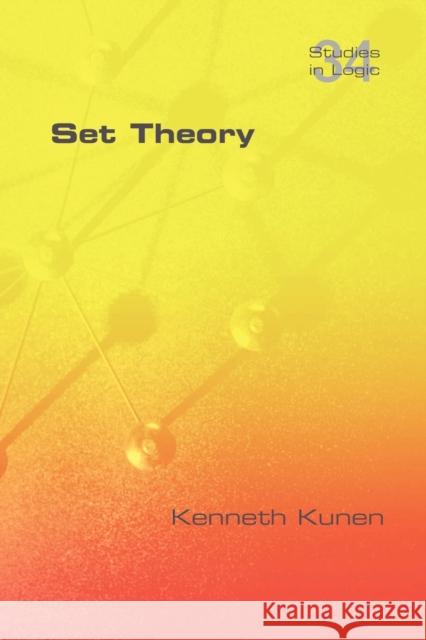Set Theory » książka
Set Theory
ISBN-13: 9781848900509 / Angielski / Miękka / 2011 / 412 str.
This book is designed for readers who know elementary mathematical logic and axiomatic set theory, and who want to learn more about set theory. The primary focus of the book is on the independence proofs. Most famous among these is the independence of the Continuum Hypothesis (CH); that is, there are models of the axioms of set theory (ZFC) in which CH is true, and other models in which CH is false. More generally, cardinal exponentiation on the regular cardinals can consistently be anything not contradicting the classical theorems of Cantor and Konig. The basic methods for the independence proofs are the notion of constructibility, introduced by Godel, and the method of forcing, introduced by Cohen. This book describes these methods in detail, verifi es the basic independence results for cardinal exponentiation, and also applies these methods to prove the independence of various mathematical questions in measure theory and general topology. Before the chapters on forcing, there is a fairly long chapter on "infi nitary combinatorics." This consists of just mathematical theorems (not independence results), but it stresses the areas of mathematics where set-theoretic topics (such as cardinal arithmetic) are relevant. There is, in fact, an interplay between infi nitary combinatorics and independence proofs. Infi nitary combinatorics suggests many set-theoretic questions that turn out to be independent of ZFC, but it also provides the basic tools used in forcing arguments. In particular, Martin's Axiom, which is one of the topics under infi nitary combinatorics, introduces many of the basic ingredients of forcing."
This book is designed for readers who knowelementary mathematical logic and axiomatic settheory, and who want to learn more about set theory.The primary focus of the book is on the independenceproofs. Most famous among these is the independenceof the Continuum Hypothesis (CH); that is, there aremodels of the axioms of set theory (ZFC) in whichCH is true, and other models in which CH is false.More generally, cardinal exponentiation on the regularcardinals can consistently be anything not contradictingthe classical theorems of Cantor and König.The basic methods for the independence proofs arethe notion of constructibility, introduced by Gödel, andthe method of forcing, introduced by Cohen. This bookdescribes these methods in detail, verifi es the basicindependence results for cardinal exponentiation, andalso applies these methods to prove the independenceof various mathematical questions in measure theoryand general topology.Before the chapters on forcing, there is a fairly longchapter on "infi nitary combinatorics". This consistsof just mathematical theorems (not independenceresults), but it stresses the areas of mathematicswhere set-theoretic topics (such as cardinal arithmetic)are relevant.There is, in fact, an interplay between infi nitarycombinatorics and independence proofs. Infi nitarycombinatorics suggests many set-theoretic questionsthat turn out to be independent of ZFC, but it alsoprovides the basic tools used in forcing arguments. Inparticular, Martins Axiom, which is one of the topicsunder infi nitary combinatorics, introduces many of thebasic ingredients of forcing.











